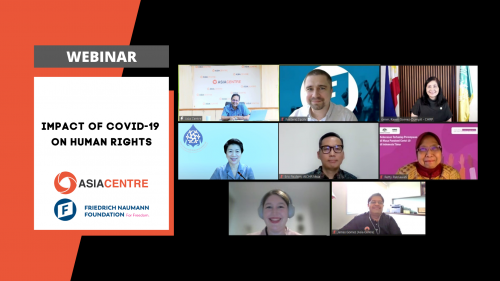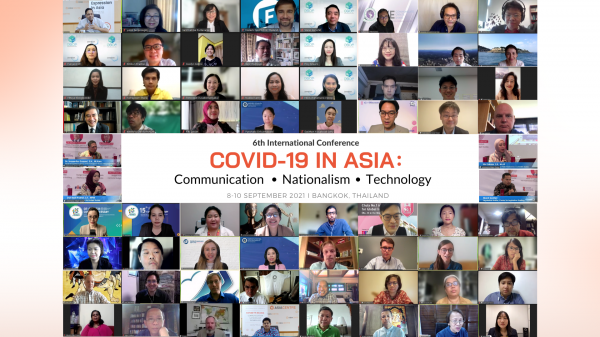
From 8 to 10 September 2021, Asia Centre convened its 6th International Conference on COVID-19 in Asia: Communication, Nationalism and Technology. Due to the ongoing travel and health advisories at the time, the conference was convened as an online event with participants using teleconferencing software to join from different locations and across international time zones.
Into its 6th year, Asia Centre’s annual conference continued to grow, with 17 partners who convened 15 panels. The Centre facilitated the presentations of 51 speakers of which 57% were male and 43% were female.

The Conference examined a variety of impacts the pandemic has had on different societies in Asia. One key issue that came up was that of COVID-19 ‘infodemic’ and the challenges it posed. Through the different panel sessions, there was an attempt to identify possible solutions to it such as media and digital literacy, as well as government transparency and increased collaboration with civil society groups.
The first day opened with welcome remarks from conference partners: Prof. Dr. Yubol Benjarongkij, Dean of the Graduate School of Communication Arts and Management Innovation at NIDA, Ms. Varinrumpai Puntanaree, Deputy CEO of the Thai Media Fund, Mr. Frederic Spohr, Head of the Friedrich Naumann Foundation for Freedom in Thailand and Dr. Robin Ramcharan, Executive Director of Asia Centre who also acknowledged the partnership of the Taiwan Foundation for Democracy. The recording of the welcome remarks will be available on Youtube soon.
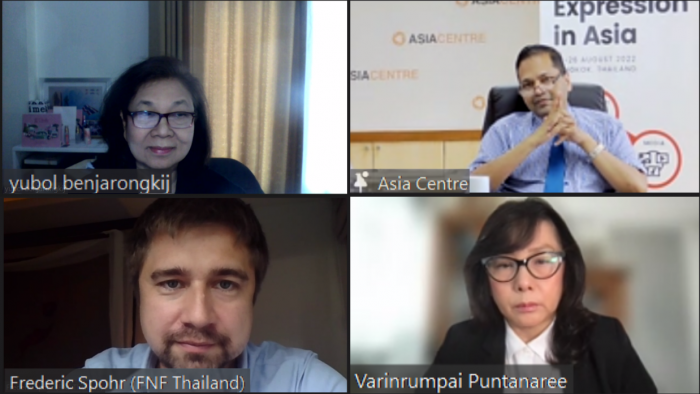

Asia Centre’s panel partners who convened the different sessions for the 2021 event were as follows: NIDA’s Graduate School of Communication and Innovation Management, Faculty of Management Science Suan Sunandha Rajabhat University, College of Social Communication Innovation Srinakharinwirot University, Faculty of Communication Arts Chulalongkorn University, CMU, Friedrich Naumann Foundation for Freedom (FNF), Centre for Applied Nonviolent Action and Strategies, Osaka Jogakuin University, Kyushu University, Graduate School of Letters Osaka University, Harm Reduction International, Expertise Agency of The Indonesian House of Representatives (Badan Keahlian DPR RI), Internews, Council of Asian Liberals and Democrats (CALD) and International Republican Institute (IRI).
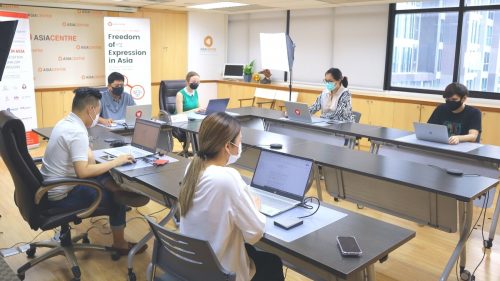
On the first day, 5 Thai universities across 4 panels discussed the impact of COVID-19 on the business sector and the main communication challenges that arose in Thailand. The discussion underlined the inequality in internet infrastructure and access to information as well as the importance of developing digital literacy of the population, as every daily activity moved online. Toward the end of the day, the political dimension was discussed. Political analysts and human rights specialists from Thai government institutions and university addressed the state of democracy and human rights in Thailand under the pandemic. The most important takeaway is their call for more transparency in managing the health crisis.
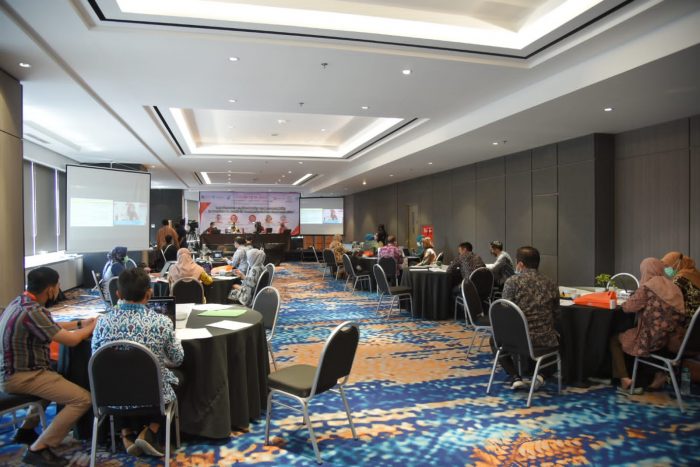
On the second day of the conference, 4 panels co-convened by 3 Japanese universities put together regional and international speakers to cover the COVID-19’s impact on regional levels in education, xenophobia and politics more generally. In addition, 2 INGOs discussed the pandemic’s impact on human rights and democracy, outlining the impact of the pandemic on civil society participation as demonstrations were forbidden in many countries. They also outlined the disproportionate impact the securitisation of the COVID-19 response had on vulnerable communities.
On the third day, 4 panels consisting of parliamentary researchers, political party representatives and media professionals discussed and evaluated legal, economic and political measures taken to fight the COVID-19 pandemic, with a special attention given to the role of vaccines and their manipulation to fit national interests over regional or global interests. The last panel of the conference examined the manipulation of the pandemic by governments to reduce political opposition during elections.

Over the 3 days, the conference participants addressed the political, cultural, social, educational and technological aspects of the pandemic. The key focus of the conference was infodemic and misinformation during the pandemic, the decline of trust in public institutions, the lack of transparency in governments’ crisis management, and the politicisation of public health measures by authoritarian governments in the region to increase their power to the detriment of the most vulnerable groups. As the conference progressed, the links between nationalism, communication and technology became self-evident.
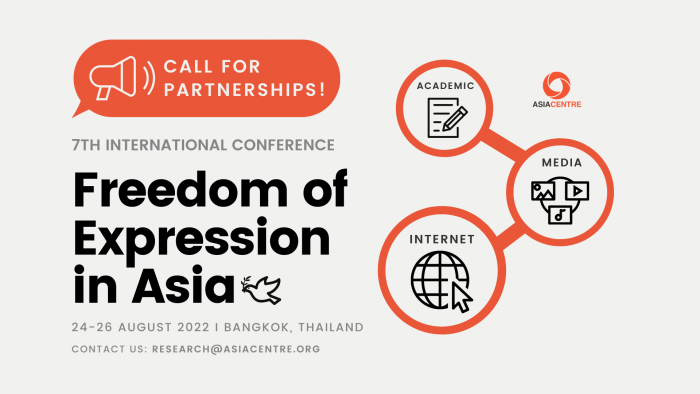
In wrapping the conference, Dr. Robin Ramacharan, Executive Director of Asia Centre announced the next year’s 7th International Conference, ‘Freedom of Expression in Asia: Academia, Media and Internet”, in Bangkok, on 24, 25 and 26 August 2022.
Asia Centre is presently calling for expressions of interest to partner for the 2022 conference. To register your interest, please send an email to research@asiacentre.org
Papers submitted will be published in the Conference Proceedings later in November 2021.
Recordings of all three days of the conference are already available on Asia Centre’s YouTube channel and Asia Centre’s Facebook page.



